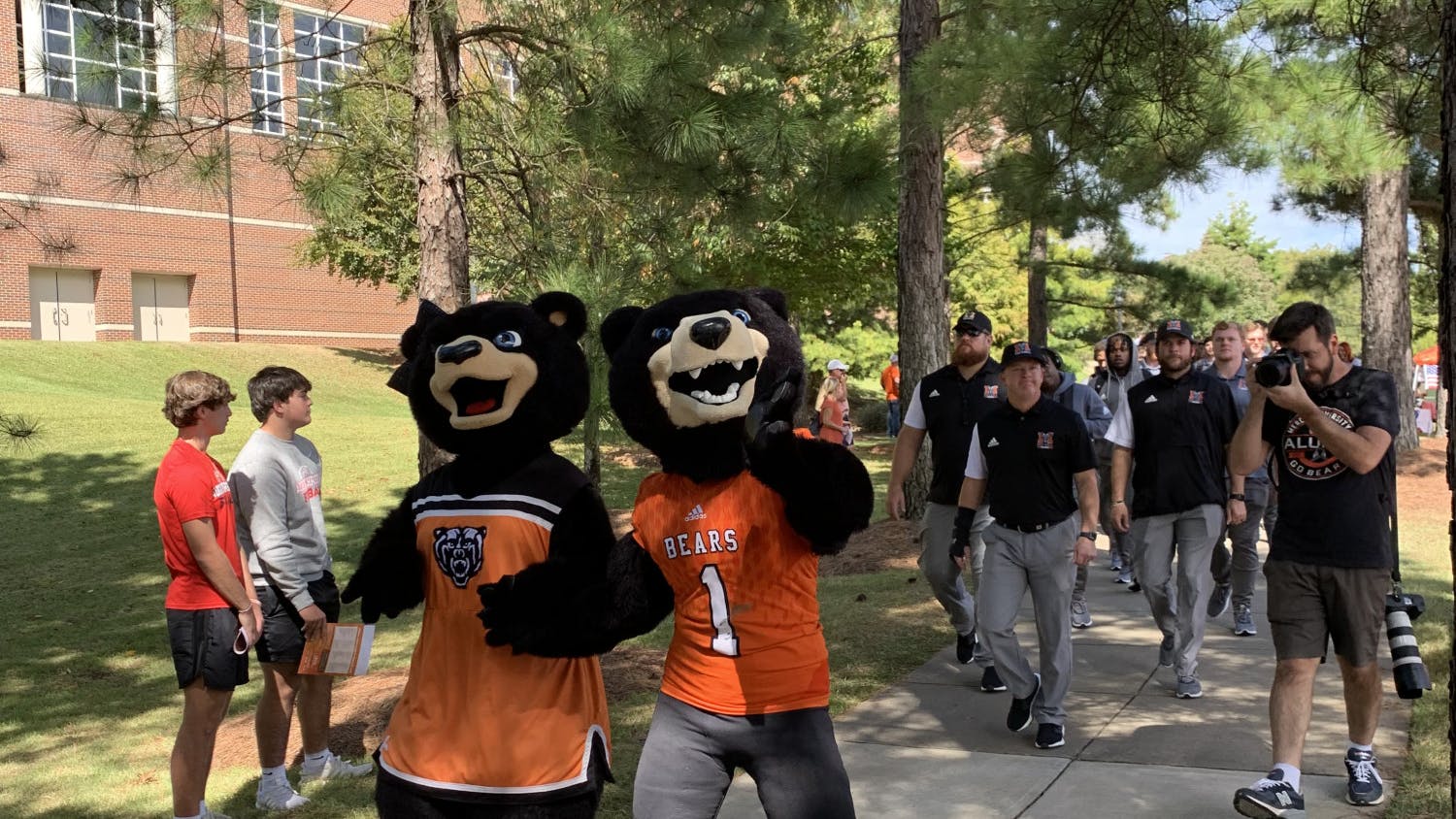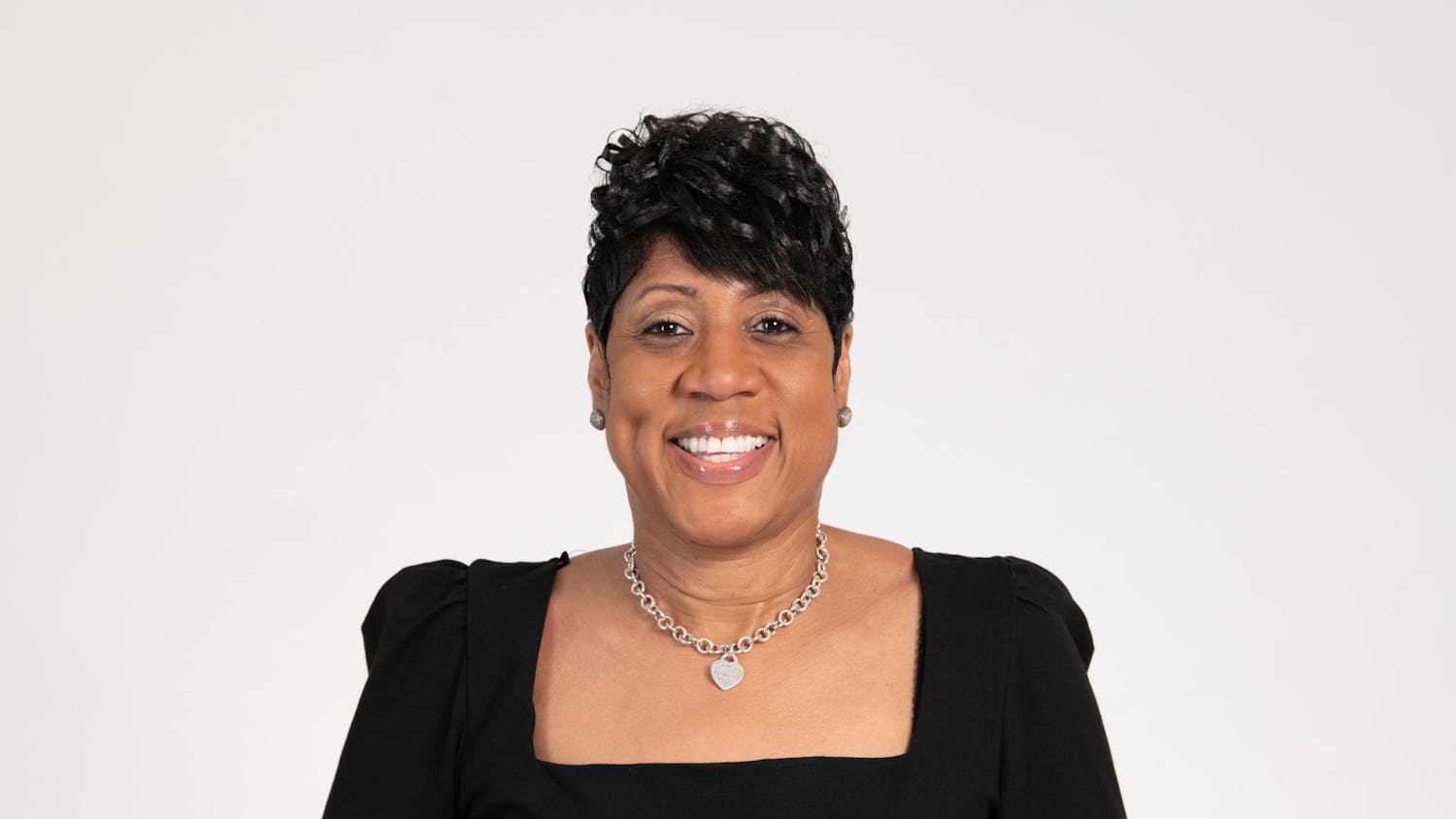Veteran cross country coach, Ryan Bailey, has led the Mercer Bears to a successful season this fall. The team placed third in the University of Georgia and University of Auburn races. They were also invited to compete in the coveted “Gold Race,” which included some of the top cross country programs in the nation.
Coach Bailey has over 30 years of experience in competitive running and 15 years of experience in coaching. He is devoted to his work and has his coaching strategy down to a science.
Coach Bailey sat down with the Cluster and shared some insight on coaching a NCAA Division I program.
Cluster: Do you feel proud of the runner’s performances this season?
Bailey: Yes, it’s a really tough sport that not many people understand. It takes a specific type of person to be good. Lots of people can go out there and run… but to run a 5K or 10k fast is an entirely different proposition. When you talk about 17 minutes and 52 seconds of running in cross country, you’re talking about 17 minutes and 52 seconds of pain. Not everybody is willing to do that.
C: How is motivating a cross country runner different from motivating another type of athlete?
B: I think there are some major differences. For instance, something like football is a very emotional sport… and a lot of times they (football athletes) can perform well because of the rush of adrenaline… In cross country it is completely the opposite. If you get too excited at the beginning of the race, you will ruin your race. Motivating a distance runner is kind of a quiet thing… You have to have the right mindset and you have to be internally motivated.
C: How would you describe your coaching style?
B: I would have to say that I am analytical…I put a tremendous amount of time and energy into learning the sport. As a coach, I have to try my best to take these 24 individuals and get them all to peak on the same day or week. I have to do this without allowing any serious injuries to accumulate. I try to help them to become more efficient (in running) and we do more drills and strength training during the off-season than during the season. I keep a record of every single workout my athletes do since 2005, and I analyze every workout that they do to determine their fitness level.
C: How do you make sure your runners keep low times?
B: You have to use the correct progression of workouts in order to keep them (the cross country team) getting faster constantly through out the season, when we begin to run at a longer and slower pace compared to the end of the season, where we (the cross country team) will be running much faster in order to reach that peak at the right day and time.
C: How do you balance the competitive nature within the team?
B: That is a tough thing and a part of the art of coaching. The tendency for a lot of athletes is to begin competing with their teammates, so I do periodically remind them that the competitor is not on your team, it’s the other school’s athletes. You also don’t want to put out that fire because your teammate will make you a better athlete and hopefully vice versa.
C: Is there a difference between coaching boys and girls?
B: Motivation-wise it absolutely depends on the individual and the gender is irrelevant. Although I do see some differences, men largely tend to be more motivated to compete as a group. Some girls have a fear of competition…girls have more of a tendency to sort of get nervous about competing. There are guys who are also scared to compete too. I have to remind that kind of person we don’t train to train, but train to race.
C: What are your hopes for this season?
B: I believe that God gave everyone a certain ability to run, but everyone on my team has a specific ability to run, or a gift to run… My goal is that when we get to conference that everyone runs up to that gift. If they all do that, whatever the outcome is I am fine with it, but obviously I want to win. With the talent level we have on the team, if everybody ran their best race or to their gift we would see some fantastic results. It’s my job to get them to the point where they can do that.




